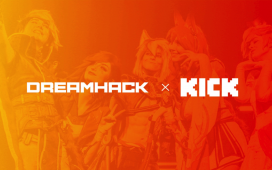This piece was written by Patrick Walker, postgraduate student studying Journalism at City University, London.

The UK’s first-ever esports degree attracted widespread attention when it was rushed into the limelight, at Staffordshire University, in 2018. Two years later, seven British universities offer similar courses. Others offer modules that cover specific career paths, like esports marketing, giving a wealth of options to students that want to work in one of the video game industry’s fastest-growing markets. It’s now worth evaluating whether these courses are giving students the experience they are looking for.
RELATED: University of Warwick announces new £275,000 esports centre
The first cohort of esports students will graduate in summer this year, equipped, in most cases, with a pioneering degree taught by a variety of industry figures in first-class facilities.
But the claims made by some of these courses are ambitious. The University of Chichester, for example, has a course introduction that is heavy on facts about the esports industry — its size, its growth — but less developed in its explanation of course content and career development. Without a single graduate to highlight in order to prove their value, are esports courses promising too much?
The UK’s first-ever esports graduates will leave Staffordshire University this year. In many ways, their entire course will have been a trial run. Universities are still testing what skills the industry is looking for, and how they can equip students to make it in an industry as broad as esports. Different courses have wildly different approaches.
Rams Singh, Senior Lecturer in Esports at Chichester, says that his course is trying to give students a “taster” of the industry. “At that age, not everyone knows what they want to do … esports is not an academic subject, so we’re trying to find a balance with the industry.
“It’s not about having a degree in esports; it’s about providing the next generation of students with skills.” There is something of a debate between his academic team and the marketing department, who he says often want to sell the course to prospective students, rather than giving a detailed picture of what the three years will in fact offer.
Kevin Cheung is a former lecturer and course leader on Staffordshire University’s trailblazing esports course. He was initially sceptical of the university’s ambition. “When I saw the job, my first question was, ‘wait, there’s an esports course?’ Then I went, ‘OK what are they teaching, who’s teaching it?’”
He said that despite his best efforts, the degree struggled to give students the value they were looking for.

“I don’t feel like a three-year degree can supply enough information about the industry. The course offered a bit of everything, but not enough to make students shine.”
Cheung specialised in observing after his two years working on Riot Games’s flagship League of Legends tournament, the LEC. Despite his experience in that field, he was asked to be course leader on a degree that largely focused on event management. “I didn’t feel comfortable teaching these courses, because my speciality was in broadcast production. I would have thought there would be staff who had specialisations in other things.”
Esports organisations often struggle to recruit people for high-flying jobs for this reason. Not only are the number of people with relevant experience few, but those that have it are often entrenched in their current jobs.
It didn’t take long for Cheung’s students to run into problems. Sara Leghari, a second-year student rep at Staffordshire, says that her lessons often focused on “basic general knowledge [of esports].” When she met course directors to express concerns, her complaints were delayed, and in some cases not dealt with at all by Staffordshire.
A spokesperson for the University said that “the vast majority of students on our courses are satisfied with their experience. … Recent staff changes have temporarily altered the dynamic of the teaching team and we are actively recruiting more lecturing staff to keep pace with the growth of the course. As this is a first course of its kind, we are learning as we grow and student feedback is an important part of this.”
They added that they want to proactively engage with the esports industry. “We welcome contact from professionals who wish to build relationships with us.”
Mitsouko Anderson, Head of Campaign Management at Code Red Esports, is highly sceptical that a generic esports degree is worth students’ time. “You don’t get a job in esports, you get a job in events production, marketing, sales, whatever it is within the industry. You need to decide what role you want to have.”
She advises students to focus on honing their professional skills over trying to prove their passion. “People fall into a trap of thinking esports is a different industry to any other. I don’t think in any other industry you’d have the question of ‘should sports degrees be a thing?’
“We need people who have the skills that fit the role — and their esports knowledge, you get that from an interview.”

Cheung’s solution is to split esports degrees into options that support specific careers: his top three suggestions are esports production, event management, and business. His former student Sara agrees: “Esports is just an umbrella term. All those roles are so different, and people should be able to get the right learning experience.”
But esports degrees, despite criticism, have enabled greater access to first-class facilities. Singh said he’s noticed real benefits to providing Chichester students with such facilities, which would not have been possible without a course developed specifically for esports. “Some of these students don’t have the equipment. It’s expensive. All the stuff we have in our tech park, our £35 million building, is useful.”
When asked about how to secure jobs in esports, answers from industry insiders weren’t specific to esports. Their advice to applicants was to talk as much about skills as your passion for the industry, and, surprisingly, understand that your undergraduate degree’s specialism may not matter much. Anderson studied English Literature, then a Master’s in Global Marketing, before her job at Code Red.
There’s no doubt that esports degrees will improve with time. Singh noted that he met with Twitch’s Head of Students and Education, Mark Candella, to discuss ways of improving Chichester University’s offering over the summer. Many universities offer individual esports modules, like the University of York’s Esports Production module led by Florian Block, a current collaborator with ESL.
RELATED: Gen.G Tigers of Shanghai relocates to University of Kentucky
Could esports degrees become mandatory for industry professionals over the next few decades? It isn’t the case with established sports, like football, and it certainly won’t happen without acknowledgement of the courses’ existing flaws. The next generation of esports courses will need heavy industry involvement. Lessons will have to be learned from the initial generation of graduates to ensure students are given the value they deserve.
This piece is the first instalment of the NSE Student Column. NSE (National Student Esports) is the official body for esports in the UK and operates the British University Esports Championship. NSE and ESI have collaborated to give members of the community the chance to share latest views, opinions, and updates from the UK university esports scene. Each month the column represents the views of the student contributor, not those of NSE nor necessarily those of ESI.














